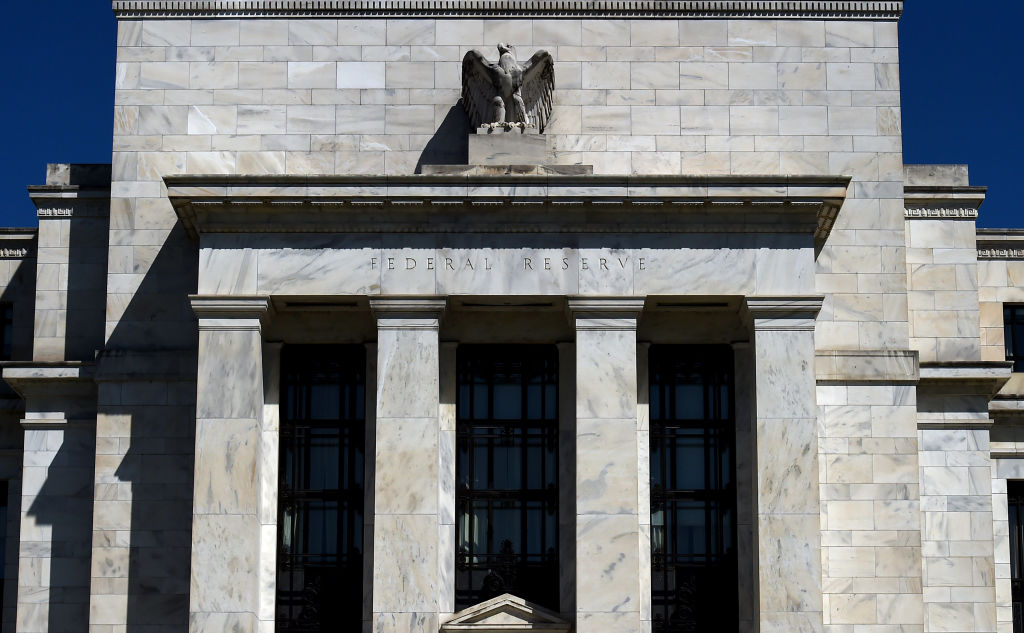Fed announces unprecedented aid to state and local governments


A free daily email with the biggest news stories of the day – and the best features from TheWeek.com
You are now subscribed
Your newsletter sign-up was successful
The Federal Reserve announced a remarkable new step to combat the economic upheaval from the coronavirus pandemic Thursday morning: For the first time ever, it will lend directly to state governments, local governments, and municipalities, by buying up to $500 billion of the bonds they issue.
Since the start of American lockdowns to contain the virus, the Fed has announced a raft of new measures to provide cheap lending to the financial industry, corporations and businesses, all in an effort to keep the economy afloat. These included offers to buy limited categories of state and local bonds from secondary dealers and markets. But this new program will buy those bonds directly from the governments that issue them. For each individual government, the Fed will lend them up to 20 percent of their revenue for 2017; and in total the Fed will lend up to $500 billion. Thanks to a sign-off by the Treasury Department, the Fed will also buy bonds with a maturity of up to 24 months. (Under its own normal powers, the Fed is limited to buying state and local debt of six months or less.)
This is much further than the central bank ever went in response to the Great Recession. Various policymakers and activists have been pushing the Fed to cross this bridge for a while. States, localities, and municipalities cannot borrow from private markets the same way the federal government can, and when economic downturns hit their tax revenue, they’re forced to cut their spending. That dynamic made the hole from the 2008 collapse much deeper than it otherwise would have been. This morning’s announcement is an effort to prevent that from happening again.
The Week
Escape your echo chamber. Get the facts behind the news, plus analysis from multiple perspectives.

Sign up for The Week's Free Newsletters
From our morning news briefing to a weekly Good News Newsletter, get the best of The Week delivered directly to your inbox.
From our morning news briefing to a weekly Good News Newsletter, get the best of The Week delivered directly to your inbox.
A free daily email with the biggest news stories of the day – and the best features from TheWeek.com
Jeff Spross was the economics and business correspondent at TheWeek.com. He was previously a reporter at ThinkProgress.
-
 What to know before filing your own taxes for the first time
What to know before filing your own taxes for the first timethe explainer Tackle this financial milestone with confidence
-
 The biggest box office flops of the 21st century
The biggest box office flops of the 21st centuryin depth Unnecessary remakes and turgid, expensive CGI-fests highlight this list of these most notorious box-office losers
-
 What are the best investments for beginners?
What are the best investments for beginners?The Explainer Stocks and ETFs and bonds, oh my
-
 Judge blocks Hegseth from punishing Kelly over video
Judge blocks Hegseth from punishing Kelly over videoSpeed Read Defense Secretary Pete Hegseth pushed for the senator to be demoted over a video in which he reminds military officials they should refuse illegal orders
-
 Trump’s EPA kills legal basis for federal climate policy
Trump’s EPA kills legal basis for federal climate policySpeed Read The government’s authority to regulate several planet-warming pollutants has been repealed
-
 House votes to end Trump’s Canada tariffs
House votes to end Trump’s Canada tariffsSpeed Read Six Republicans joined with Democrats to repeal the president’s tariffs
-
 Bondi, Democrats clash over Epstein in hearing
Bondi, Democrats clash over Epstein in hearingSpeed Read Attorney General Pam Bondi ignored survivors of convicted sex offender Jeffrey Epstein and demanded that Democrats apologize to Trump
-
 El Paso airspace closure tied to FAA-Pentagon standoff
El Paso airspace closure tied to FAA-Pentagon standoffSpeed Read The closure in the Texas border city stemmed from disagreements between the Federal Aviation Administration and Pentagon officials over drone-related tests
-
 Judge blocks Trump suit for Michigan voter rolls
Judge blocks Trump suit for Michigan voter rollsSpeed Read A Trump-appointed federal judge rejected the administration’s demand for voters’ personal data
-
 US to send 200 troops to Nigeria to train army
US to send 200 troops to Nigeria to train armySpeed Read Trump has accused the West African government of failing to protect Christians from terrorist attacks
-
 Grand jury rejects charging 6 Democrats for ‘orders’ video
Grand jury rejects charging 6 Democrats for ‘orders’ videoSpeed Read The jury refused to indict Democratic lawmakers for a video in which they urged military members to resist illegal orders
